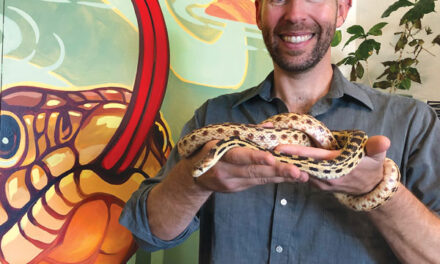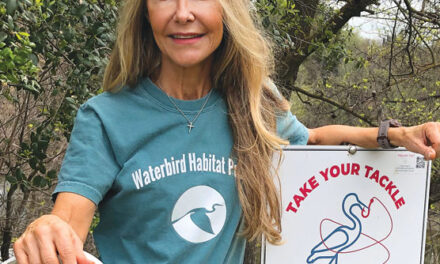There is a hidden world in Sacramento, off the grid and unknown to most. Dogs in small cages or padlocked to trees and poles. Chains tangled with little room to move. Many without food, water or shelter.
These are the dogs of homeless camps.
“You know those commercials on TV?” Debbie Tillotson says. She’s talking about the heart-wrenching public service ads that expose the underworld of animal abuse. “You can easily insert Sacramento. This is your backyard, it’s the same thing.”
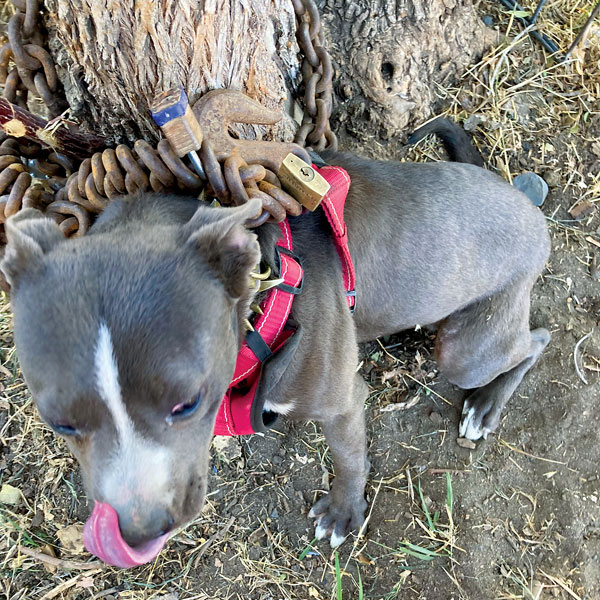
For the past year, Tillotson and Linda Massaro have visited the American River Parkway near Highway 160 every day to take food, water and supplies to homeless camp dogs.
Tillotson and Massaro began volunteering 14 years ago at Mercer Clinic, held monthly at Loaves & Fishes, where the unhoused receive free medical services for pets. The clinic shut down when the pandemic hit.
“The reason we ended up down at the river was because when COVID came, they stopped having the clinics,” Tillotson says. “But we knew there had to be animals that needed help.
“We had no idea what we were walking into.”
Tillotson and Massaro have helped nearly 40 dogs in more than eight homeless camps. The duo purchase food and supplies with their own money. In the summer, they take water. “Bowls too,” Tillotson says. “A lot of these people don’t have anything down there for the animals.”
Massaro, who works in West Sacramento, goes to the river on her lunch break. Tillotson works nights in Rocklin and visits dogs earlier in the day.
“People have a misconception of how well the dogs are taken care of,” Tillotson says. “The standard MO is, ‘I feed my dog before I feed myself.’ That is the biggest line of crap I’ve ever heard.
“They don’t feed them. They don’t give them water. They keep them on heavy chains.”
Tillotson and Massaro have left bags of food that have gone unopened. Now they stay to feed the dogs to ensure they get nourishment. “They are starving, ravenous,” Tillotson says.
To get dogs out of dirt and rain, Tillotson and Massaro build small houses using PVC pipe wrapped in a tarp. Heavy cardboard and commercial-grade garbage bags provide a water-proof floor, topped with straw so the dogs can dig in and stay warm. Each house costs $100.
“We have gone out in the middle of the night with pouring down, freezing rain to build structures for the dogs because they won’t let them in the tent,” Tillotson says. “The next day, one homeless man said, ‘At least they didn’t cry all night.’ Why are they crying? Because they’re soaking wet, freezing their asses off in the middle of nowhere, no protection, nothing.”
Tillotson talks about a young pit bull mix chained to a tree with two padlocks. “The chain was extremely heavy,” she says. “No water, no food. I tried to get him loose but couldn’t. Where is animal control?”
Earlier this year, Tillotson and Massaro shared their stories with the City Council’s Animal Care Citizens Advisory Committee.
They gave examples of chronic dog abusers who take mother dogs and their puppies from other homeless camps to sell or trade for drugs and alcohol. Before one set of puppies was taken, Tillotson and Massaro got the animals their first set of shots and put them on a spay/neuter list. “Now, guess what? These puppies are going to die because they’re not going to get their second shots,” Tillotson said.
Massaro told the committee the mother dog now lives in a small cage. None of the dogs are being fed.
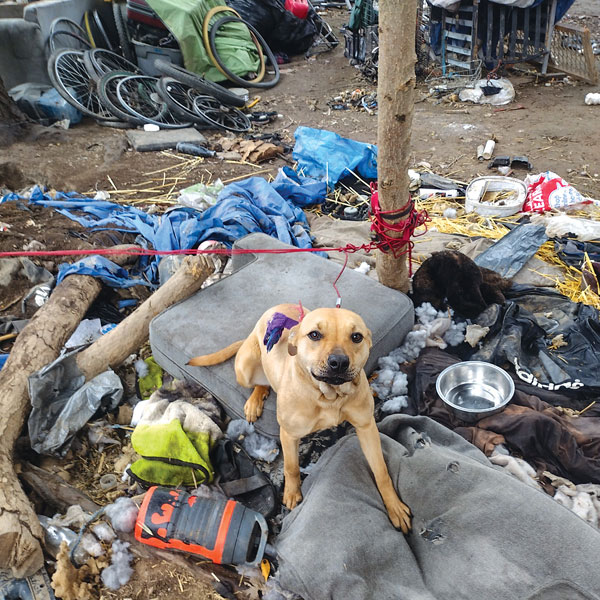
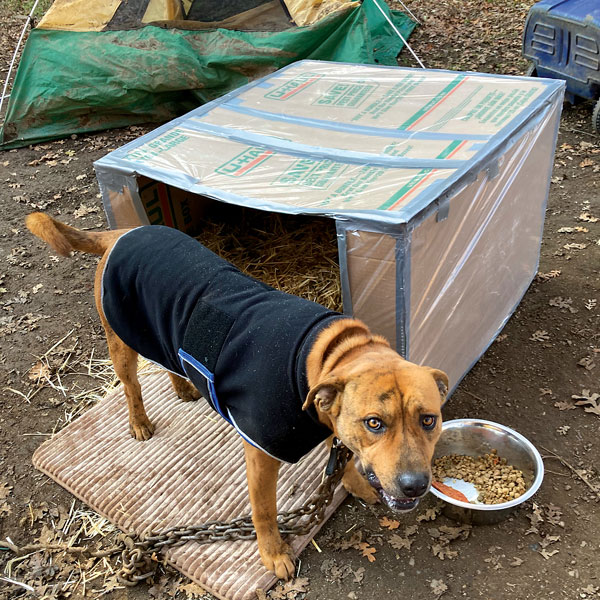
“The worst part of this situation is when we try to get help for these animals, nobody helps us. Nobody even gives us direction,” Tillotson said. Multiple calls to 311 and visits to Front Street Animal Shelter are ignored. Park rangers tell them it’s not their jurisdiction.
“It’s frustrating. I thought that’s what animal shelters did,” Tillotson said. “Guide us, give us direction. Help us help you—because basically we’re doing your job.”
Front Street Animal Shelter received $753,230 in COVID relief funding last year for a homeless outreach program. Front Street reports two registered veterinary technicians, an animal control officer and animal services coordinator go out on Wednesdays and Thursdays.
The homeless outreach team “primarily responds to requests from owners, community members, case managers, other nonprofit organizations or when an animal control officer feels an owner could benefit from the program’s services,” says Ryan Hinderman, Front Street’s communications and customer service manager.
He says they visit known encampments and transitional shelters, spending most of their time north of the river.
Tillotson and Massaro, who are at the homeless camps seven days a week, have yet to see the program in action. “We have never seen an animal control person down there,” Massaro says.
Massaro asked the committee for a response to their pleas. Committee Chair Leah Christie Morris said the committee is a “listening body” that takes information to the City Council. “I don’t have any answer that things will be different tomorrow,” she told them.
Lynette Hall, the city’s community engagement manager, and her staff took notes at the meeting. Their task is to follow up on complaints presented by community members about Front Street Animal Shelter’s management.
Hall “said she would get hold of us to talk, but we haven’t heard a thing,” Tillotson says. “But we expected that. It’s not their priority.”
More than a month after presenting testimony of starving and abused dogs, Front Street was “still looking into this complaint,” Hinderman says. “While we do our best to respond, staffing challenges and the number of requests exceed our ability to respond to every request.”
Tillotson says, “Before I started doing this, I can honestly say I’d be that person advocating for a homeless person to have their animals. No more.
“For the animals, it’s not their choice. They should not have to live that way. It’s a whole different world for these animals. I cry myself to sleep and wake up with a pit in my stomach. What are we going to see today?”
Cathryn Rakich can be reached at crakich@surewest.net. Follow us on Facebook, Twitter and Instagram: @insidesacramento.




